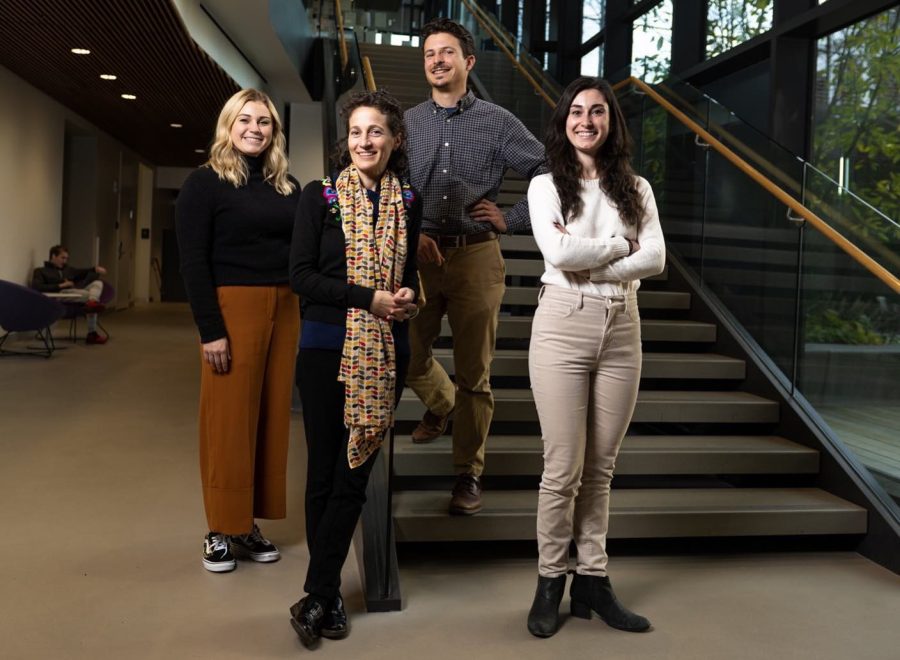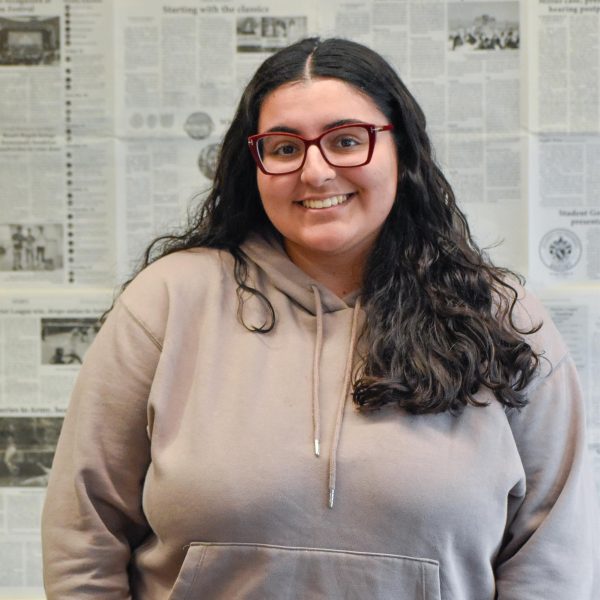The Office of Sustainability recently launched new initiatives for sustainability efforts: the Sustainable Living Certificate and Leopard Leftovers.
The Sustainable Living Certificate is an online survey program designed to encourage students to work on their sustainability efforts in whatever ways they can. The survey asks questions regarding different aspects of sustainable college living; at the end of the survey, students will receive feedback and a sustainability “level” — either bronze, silver, gold or platinum. After completing the survey, Eco Reps in each residence hall will have prizes and certificates for residents who complete the certificate.
Samantha Smith, the sustainability outreach and engagement manager for the Office of Sustainability, feels that the certificate program is a good way for students to both see their impact on sustainability at Lafayette and feel inspired to be more sustainable in their own lives.
“The student will be recognized for the efforts that they do,” Smith said. “They’d be able to take the certification, learn the things they’re doing and they’re not doing and see what other actions they might be able to incorporate into their daily lives.”
According to Smith, the Sustainable Living Certificate is an opportunity for students to see how impactful their own sustainability efforts can be, despite how seemingly small these efforts may look.
“Sometimes sustainability can feel so big,” Smith said. “We have all these different goals that the entire campus community is a part of, so this is [students’] opportunity to sort of assess that and see and improve year over year.”
The Sustainable Living Certificate was made available for student participation via Qualtrics yesterday. A similar program for office and faculty sustainability efforts, the Sustainable Office Program, is currently in its “pilot phase,” according to Smith.
The main goal of the other new sustainability initiative, Lafayette Leftovers, is to help combat one of Lafayette’s most consistent sustainability problems: food waste.
According to Melissa Adamson, the Office of Sustainability’s climate action and circularity manager, Lafayette Leftovers is a step toward creating a less wasteful dining experience on campus.
“Every day, offices, clubs, departments host events where there’s food that’s catered either from Lafayette catering services or outside catering, and at the end of those events, there’s often leftover food. And that food often goes uneaten and then ultimately thrown away. So this program exists to reduce that wasteful cycle and add food security systems into our campus,” Adamson said.
The Leopard Leftovers program will run primarily on GroupMe, where messages will be sent to participating students when there is leftover food available following a campus event. Students will be able to come to a specified location to collect these leftovers.
According to Adamson, Leopard Leftovers is a good starting point for responding to specific student feedback regarding food waste on campus.
“Food waste is a topic that comes up a lot when we talk to students about what they are observing on campus. So this feels like our response to something that has been raised as a problem,” Adamson said.
“This is one program within a broader food waste reduction strategy on campus. And that is grounded in the sustainability principles and what we do as our office,” she added.
Adamson and Smith think that both the Sustainable Living Certificate and Leopard Leftovers are effective ways of spreading sustainability consciousness across campus and emphasize the idea of sustainability as a campus-wide initiative.
“We need to work as a community. Students, faculty and staff, the administration … needs to work as a community to change our impact as a college and as a campus,” Smith said.
“These programs, I think, are two great examples of starting small, understanding that the problems we’re up against with sustainable living and food waste are big, but that doesn’t make small things meaningless. And I think these two programs highlight that,” Adamson said.
Disclaimer: Culture editors Madeline Marriott ’24 and Bernadette Russo ’24 are interns at the Office of Sustainability. They did not contribute writing or editing to this article.























































































































